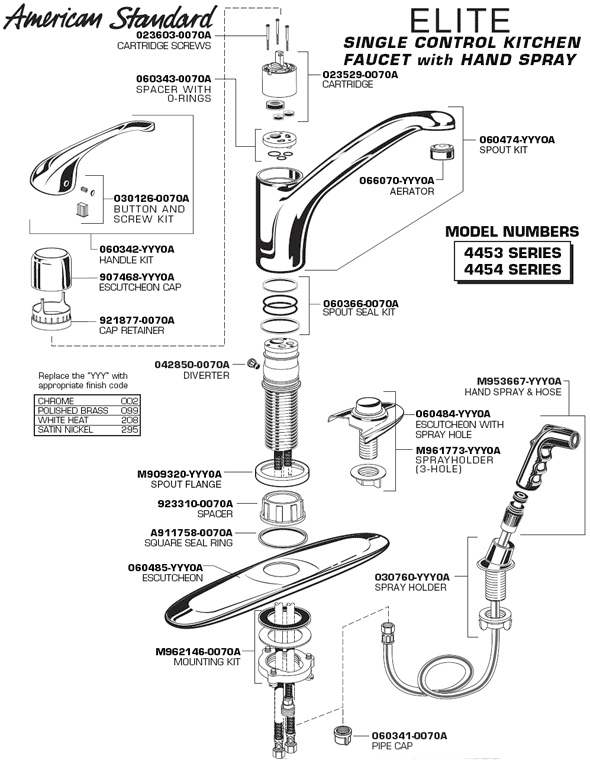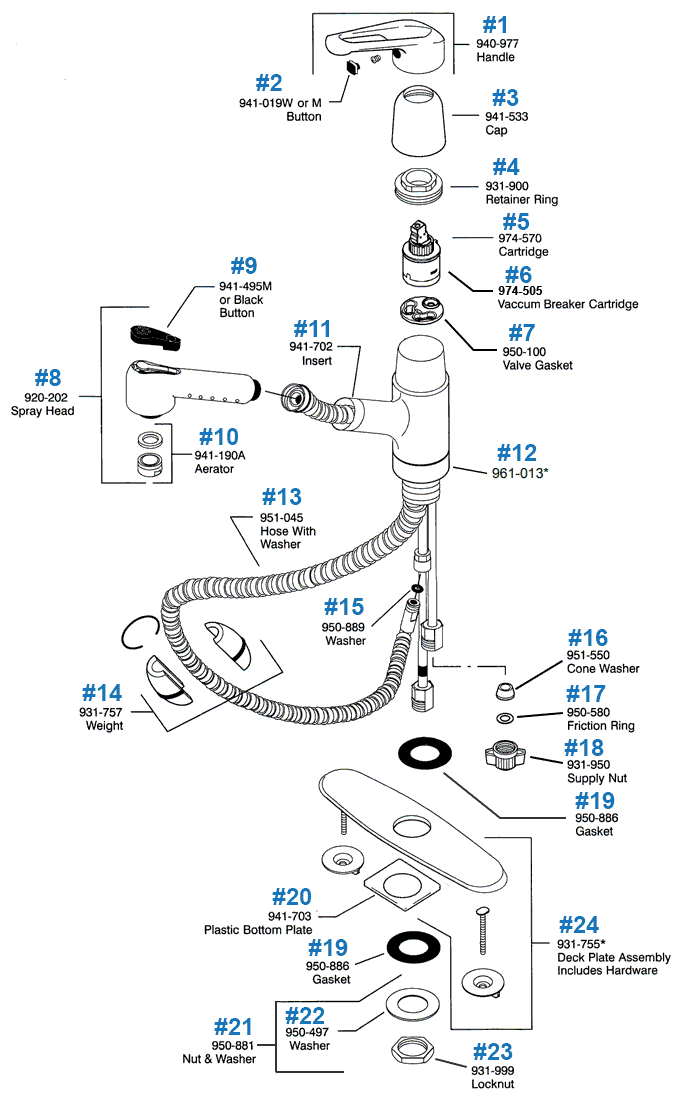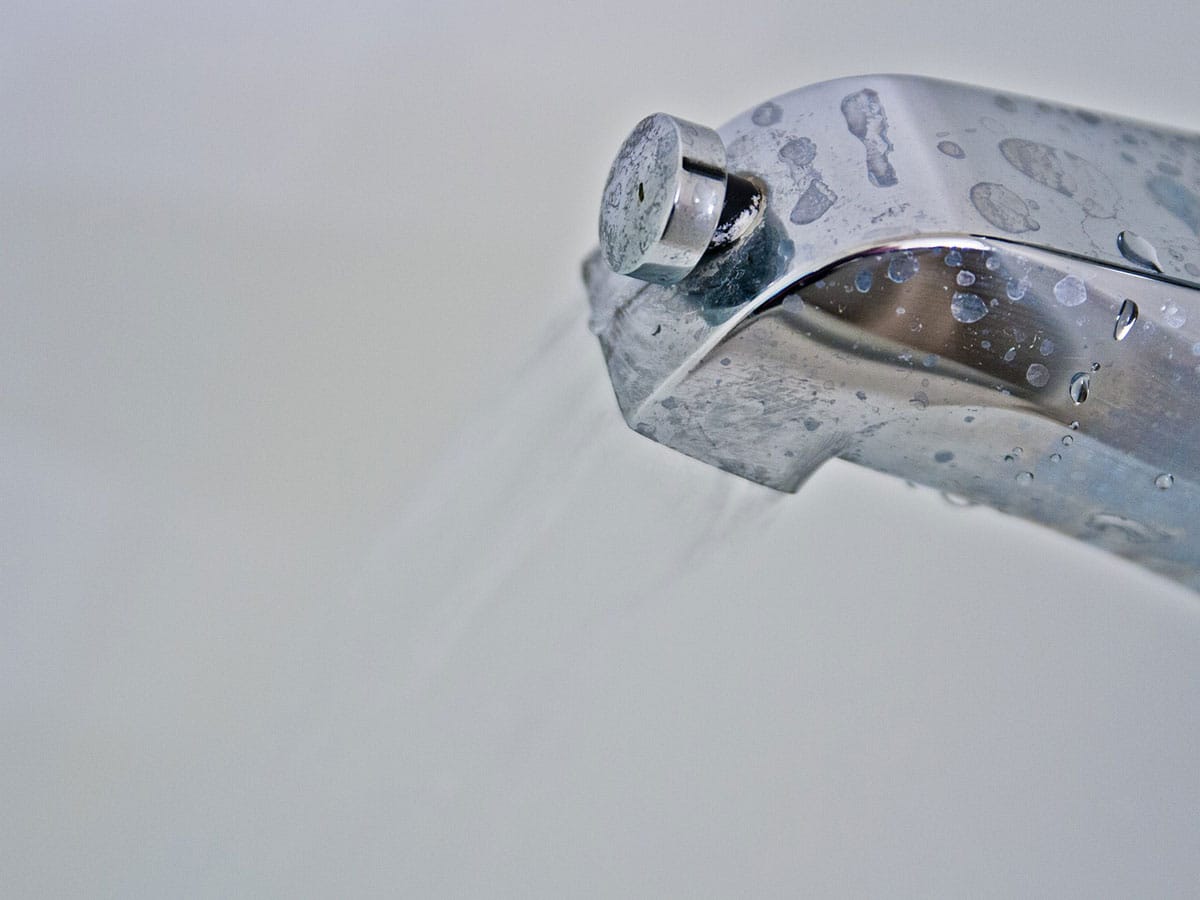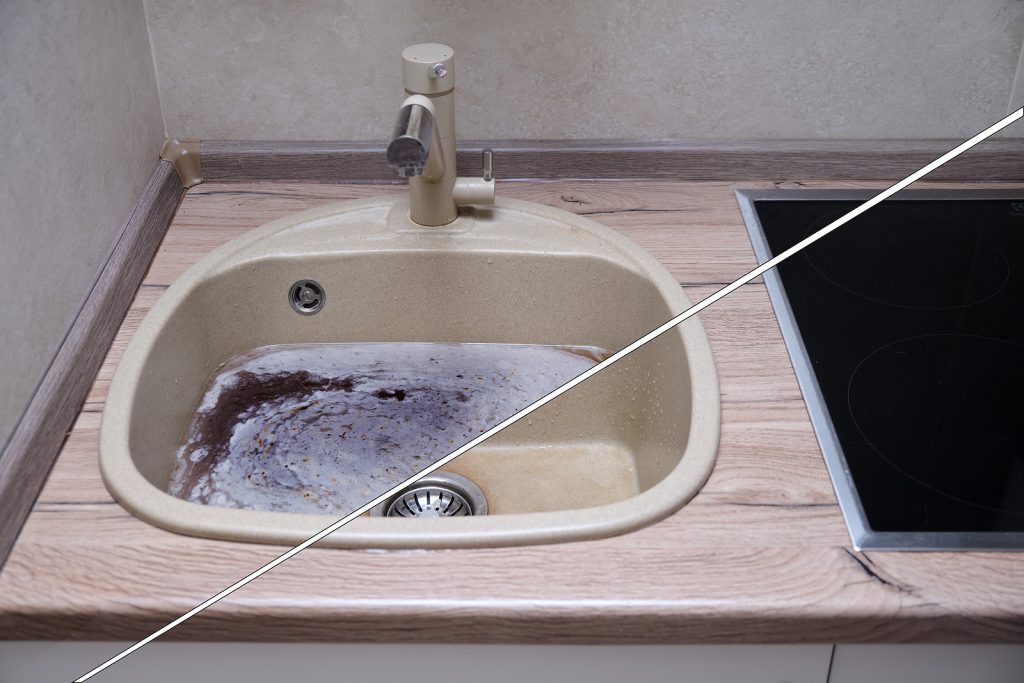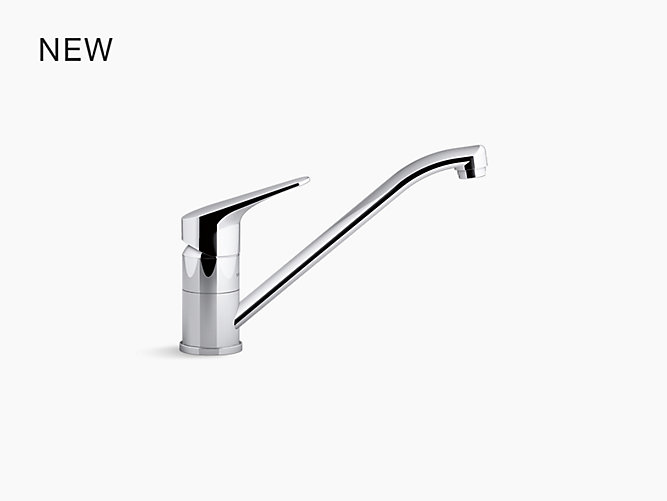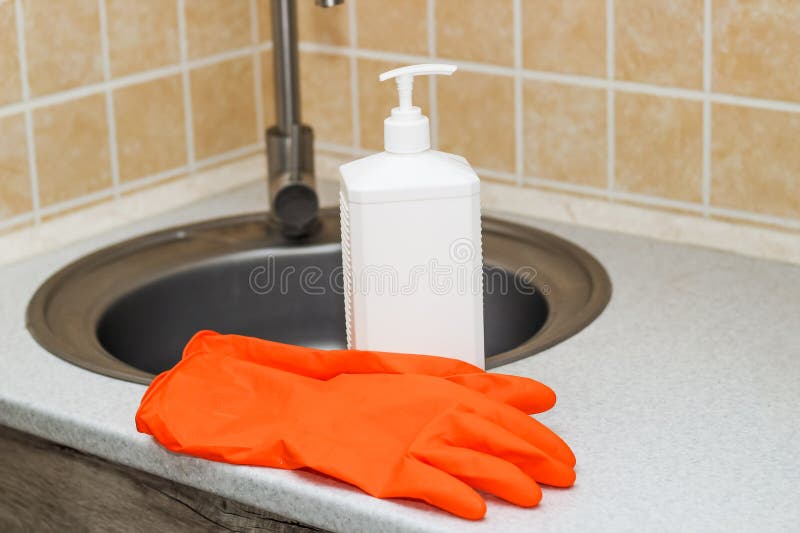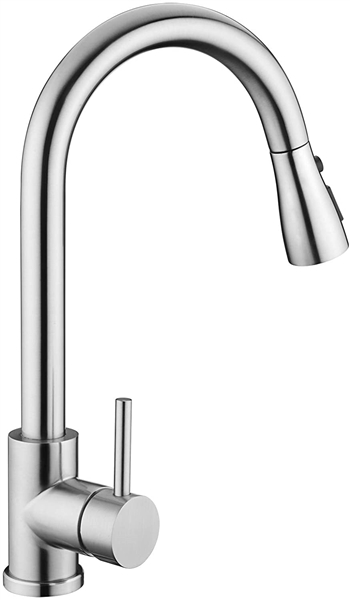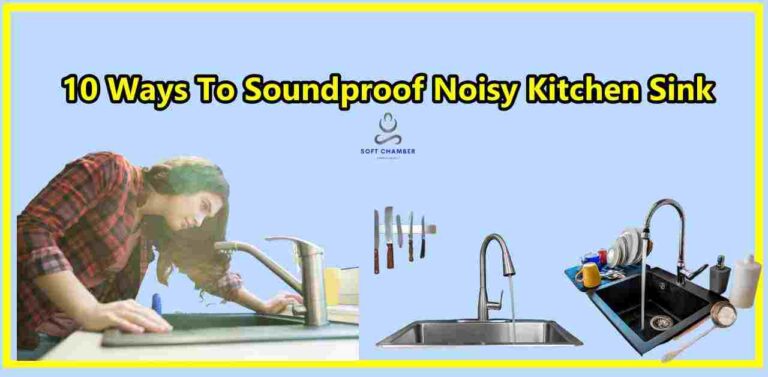If you're constantly being driven crazy by the loud and annoying noises coming from your kitchen sink faucet, don't fret – you're not alone. A noisy kitchen sink faucet is a common problem that many homeowners face, and it can be caused by a variety of factors. Fortunately, there are several solutions you can try to fix the noise and bring some peace back to your kitchen. To start, you'll need to identify the source of the noise. One of the most common causes is a loose or worn out washer in the faucet. This can create a thumping or banging noise every time you turn on the tap. To fix this, simply replace the washer with a new one. If the problem persists, you may need to call a professional plumber to take a closer look.1. How to Fix a Noisy Kitchen Sink Faucet
Another possible cause of a noisy kitchen sink faucet is a loose or damaged water line. This can create a vibrating or humming noise when water is running through the faucet. To troubleshoot this issue, you'll need to inspect the water lines for any signs of damage or looseness. If you find any, tighten or replace the lines as needed. Another potential culprit for a noisy kitchen sink faucet is the aerator, which is the small screen at the end of the faucet. Over time, mineral deposits can build up in the aerator, causing it to become clogged and create a whistling or sputtering noise. To fix this, remove the aerator and clean it thoroughly with vinegar or a commercial mineral deposit remover. Then, reattach it to the faucet.2. Troubleshooting a Noisy Kitchen Sink Faucet
Aside from the specific issues mentioned above, there are a few other common causes of a noisy kitchen sink faucet. One is high water pressure. If your water pressure is too high, it can create a loud banging noise when you turn on the faucet. In this case, you'll need to install a pressure-reducing valve to regulate the water flow. Another cause could be loose mounting hardware or a loose faucet. This can create a rattling or shaking noise when water is running through the faucet. To fix this, tighten any loose screws or bolts and ensure that the faucet is securely attached to the sink.3. Common Causes of a Noisy Kitchen Sink Faucet
If you've tried all the troubleshooting tips and the noise persists, there are a few other things you can try to quiet your kitchen sink faucet. One option is to install a water hammer arrestor, which is a device that absorbs shock waves in the water line and helps reduce noise. Another option is to add a rubber gasket or cushioning material between the faucet and the sink to reduce vibrations. In some cases, a noisy kitchen sink faucet may be a sign of a larger plumbing issue. If you suspect this is the case, it's best to consult a professional plumber for an inspection and proper diagnosis.4. How to Quiet a Noisy Kitchen Sink Faucet
If you're a handy homeowner, there are a few DIY solutions you can try to quiet your noisy kitchen sink faucet. One option is to install a new faucet that is specifically designed to reduce noise, such as a ball valve faucet. Another option is to install a water pressure regulator to bring down the water pressure and reduce noise. Just be sure to do your research and follow proper installation instructions. You can also try adding foam or rubber insulation to the water lines to reduce noise and vibrations. This can be a simple and inexpensive solution that can make a big difference in reducing the noise level in your kitchen.5. DIY Solutions for a Noisy Kitchen Sink Faucet
Prevention is always better than cure, and there are a few things you can do to prevent your kitchen sink faucet from making noise in the first place. Regular maintenance is key – make sure to inspect and clean your faucet aerator and water lines regularly to prevent mineral buildup. You should also check the mounting hardware and faucet for any signs of wear and tear and replace or tighten as needed. It's also important to be mindful of how you use your faucet. Don't turn the water on or off too abruptly, as this can cause loud noises. Instead, turn the handle slowly and steadily to reduce the impact of the water flow.6. How to Stop a Kitchen Sink Faucet from Making Noise
In addition to regular maintenance and mindful use, there are a few other tips to keep in mind to prevent your kitchen sink faucet from making noise. For one, be sure to use a high-quality faucet that is designed for durability and noise reduction. You should also check for any leaks or other plumbing issues that could contribute to a noisy faucet and address them promptly. Investing in a noise-dampening sink can also make a big difference in reducing kitchen noise overall. These sinks are made of materials that absorb sound and can help reduce the impact of a noisy faucet.7. Tips for Preventing a Noisy Kitchen Sink Faucet
If you're not sure what's causing the noise in your kitchen sink faucet, you may need to do some detective work to identify the source. Start by turning off the water supply and draining any remaining water from the faucet. Then, slowly turn the water back on and listen for where the noise is coming from. Once you've identified the source, you can follow the appropriate troubleshooting tips mentioned earlier to fix the issue. If you're unsure or uncomfortable tackling the issue on your own, it's always best to call a professional plumber for assistance.8. How to Identify and Fix a Noisy Kitchen Sink Faucet
To recap, some of the most common problems that cause a noisy kitchen sink faucet include loose or worn out washers, damaged water lines, clogged aerators, high water pressure, loose mounting hardware, and loose or damaged faucets. By addressing these issues promptly and regularly maintaining your faucet, you can keep your kitchen sink quiet and functional.9. Common Problems that Cause a Noisy Kitchen Sink Faucet
To ensure that your kitchen sink faucet stays quiet and in good working condition, it's important to maintain it regularly. This includes cleaning the aerator and water lines, checking for leaks or other issues, and addressing any problems promptly. You should also be mindful of how you use the faucet and avoid turning the water on or off too abruptly. With these tips and solutions in mind, you can say goodbye to a noisy kitchen sink faucet and enjoy a peaceful and functional kitchen once again. Remember, when in doubt, don't hesitate to call a professional for assistance in fixing any plumbing issues. Your ears (and sanity) will thank you.10. How to Maintain a Quiet Kitchen Sink Faucet
Why is My Kitchen Sink Faucet Making Noise?

Common Causes of Noisy Kitchen Sink Faucets
 If you've noticed strange noises coming from your kitchen sink faucet, you're not alone. Many homeowners experience this problem at some point, and it can be quite frustrating. Not only is the noise itself bothersome, but the cause of the noise can also be a cause for concern. Here are some common reasons why your kitchen sink faucet may be making noise:
If you've noticed strange noises coming from your kitchen sink faucet, you're not alone. Many homeowners experience this problem at some point, and it can be quite frustrating. Not only is the noise itself bothersome, but the cause of the noise can also be a cause for concern. Here are some common reasons why your kitchen sink faucet may be making noise:
1. Loose Parts
One of the most common culprits of a noisy kitchen sink faucet is loose parts. Over time, the constant use of your faucet can cause parts such as the aerator, washer, or mounting nuts to become loose. This can result in a rattling or vibrating noise when the water is turned on. Luckily, this is a relatively easy fix. Simply tighten any loose parts with a wrench or pliers to eliminate the noise.2. Water Hammer
If you hear a loud banging noise when you turn off your faucet, it could be due to a phenomenon called water hammer. This occurs when the water flow is suddenly stopped, causing the pipes to shake and create a loud noise. Water hammer can be caused by high water pressure, so consider installing a pressure-reducing valve to solve the issue.3. Mineral Buildup
Over time, minerals from hard water can build up in your faucet and cause a whistling or squealing noise when the water is turned on. This buildup can also affect the flow of water, resulting in a weak stream or inconsistent pressure. To fix this issue, you can try cleaning the faucet with a mixture of vinegar and water or installing a water softener in your home.Preventing Noisy Kitchen Sink Faucets
 Now that you know some common causes of noisy kitchen sink faucets, it's important to take steps to prevent this issue in the future. Here are some tips to keep your faucet functioning quietly and efficiently:
- Regularly clean and maintain your faucet to prevent mineral buildup.
- Check for loose parts and tighten them as needed.
- Consider installing a water pressure-reducing valve to prevent water hammer.
Now that you know some common causes of noisy kitchen sink faucets, it's important to take steps to prevent this issue in the future. Here are some tips to keep your faucet functioning quietly and efficiently:
- Regularly clean and maintain your faucet to prevent mineral buildup.
- Check for loose parts and tighten them as needed.
- Consider installing a water pressure-reducing valve to prevent water hammer.
Conclusion
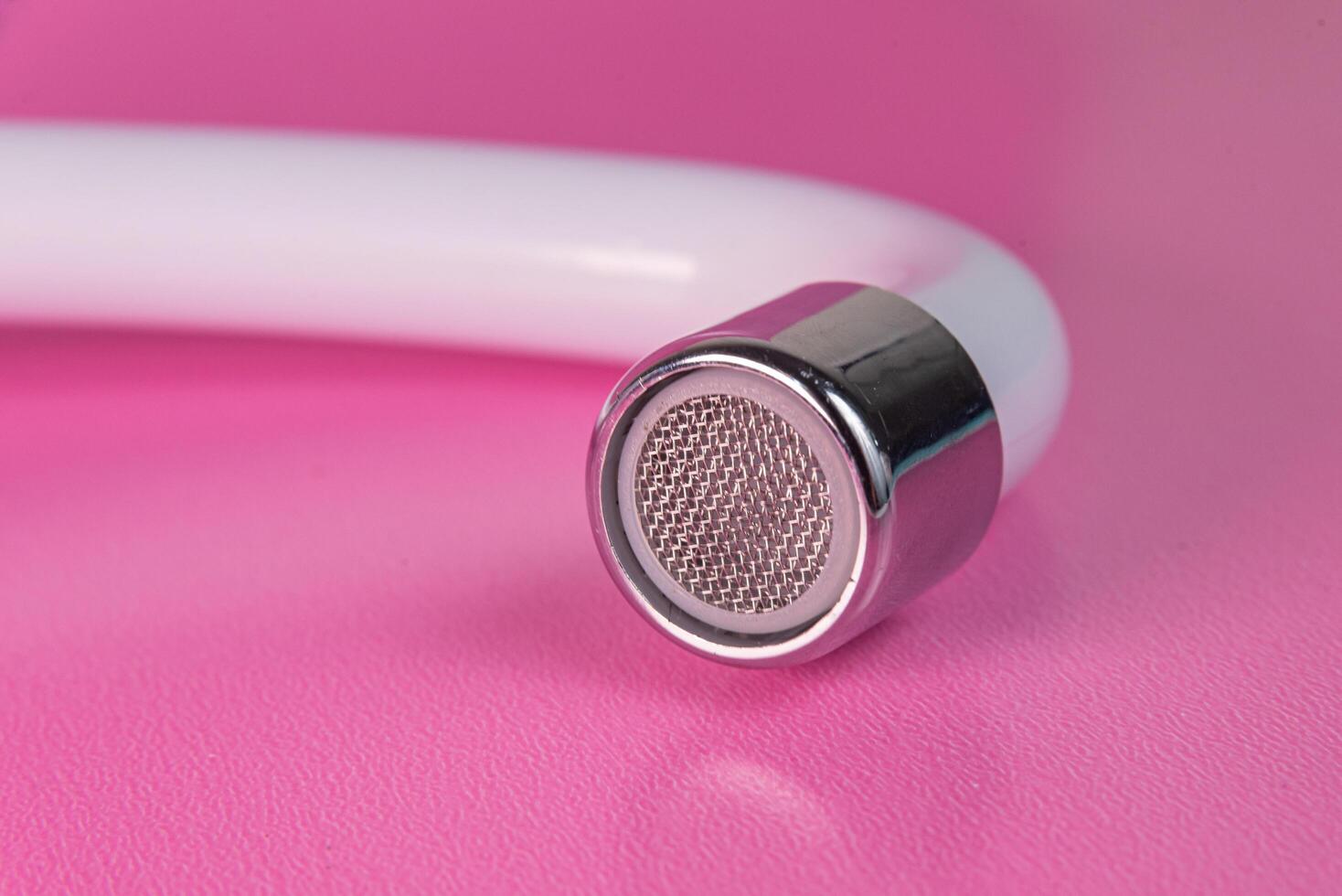 A noisy kitchen sink faucet can be a nuisance, but it's usually a simple fix. By identifying the cause of the noise and taking preventative measures, you can keep your faucet functioning quietly and effectively for years to come. If you're still experiencing issues with your faucet, it's best to consult a professional plumber for further assistance.
A noisy kitchen sink faucet can be a nuisance, but it's usually a simple fix. By identifying the cause of the noise and taking preventative measures, you can keep your faucet functioning quietly and effectively for years to come. If you're still experiencing issues with your faucet, it's best to consult a professional plumber for further assistance.











